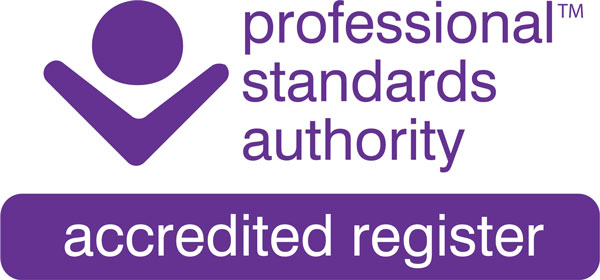Inside our ethics committee
Ian Thomson, deputy chair of the HGI’s Registration and Professional Standards Committee (RPSC), shares important learning points from cases which were presented to the committee within the past year for adjudication or advice.
Distress during rewind
As human givens practitioners are aware, the rewind detraumatisation technique is a powerful therapeutic tool. At the same time, the fact that several clients have complained over the years that they suffered distress while undergoing rewind highlights the need to handle the procedure with care. It is important to be as sure as is possible beforehand that the client will not suffer severe distress while undergoing the procedure. This means making a careful assessment of the client’s current state of mind, which will usefully include asking him or her to complete the Impact of Events Scale – Revised (IES-R). This investigates the degree of emotional reactions to day-to-day events, and automatic triggering of thoughts and feelings about the traumatic experience, to assess the level of present post-traumatic symptoms.
If a therapist feels that it is safe to go ahead, it is always a good to idea to explain in advance what is going to happen, emphasising that the client will be in a calm state throughout and assuring them that, should they become upset, they will be calmed down quickly.
It must be remembered, however, that sometimes a client may seem very calm or detached when talking about a traumatic event and, rather than indicating that it is safe to go ahead, this might, in fact, indicate that they are dissociated from the event because it is so extremely traumatic for them. As practitioners know, it is a prerequisite to activate the trauma template in the client before starting the rewind procedure. If the client cannot connect with any emotion, this in itself indicates that the rewind technique, at this stage, is not appropriate. Where in doubt about the wisdom of carrying out the rewind, it is best to seek advice from your supervisor.
Finding clients for practice sessions
A trainee HG practitioner working towards Part Three of the diploma obviously needs to get therapy practice and, when ready, to find a client willing to be filmed during therapy. Trainees have often sought advice about how best to do this. It is not advisable for trainees to advertise their services locally, even if they are offering free sessions and make it clear that they are in training, as they cannot know how complex the problems of any respondent will be. Preferable is to ‘put the word out’ to friends, family and colleagues, asking them to pass on your name and details to anyone they know who has a relatively straightforward concern, such as depression, anxiety or phobia, or a trauma caused by a one-off incident, such as being mugged. It is important that the referrer makes clear that the practitioner is in training.
If you do choose to practise privately in order to gain the experience needed for success at Part Three, you must designate yourself as HG Dip P (Trainee). It is also an absolute requirement that any trainee who advertises their services online, or elsewhere, must make it clear that they are a trainee every time that the word counsellor/counselling or psychotherapist/psychotherapy is mentioned in copy in relation to themselves.
Removal from HGI Register
In the only case of its kind that has ever come before the RPSC, involving lengthy investigation and appeal procedures, an HG practitioner has had to be removed from the register. While we do not expect such an extreme case ever to recur, there are a number of points arising from it which are useful to flag up to ensure safe practice.
It is never acceptable to book clients in for ‘courses’ of sessions and each client needs to be given information which makes it clear that they are free to end therapy whenever they choose and that, should they have any concerns about the therapy, they can contact the Human Givens Institute, via the website at www.hgi.org.uk or by phone on 01323 811662. We recommend usage of the customisable confidentiality agreement and information for clients sheets, which can be obtained from your HG Supervisor. (The GDPR section covers changes made in accordance with the General Data Practice Regulation, which came into force on May 25.)
It is also vital not to create dependency in a client. Additionally, therapists must maintain professional boundaries; avoid the development of dual relationships, such as by inviting clients to social events or through exchanging presents; and not allow family members to become involved in a client’s affairs. Therapists are most at risk of straying from the path of good practice in these ways if they start to work in isolation. Supervision and attendance at peer groups, as well as regular rereading of the HGI Code of Ethics and Conduct are important, ongoing means of checking out that one’s own practice remains appropriate and ethical.
Point A.14.5 of the ethics code has been strengthened as follows:
Practitioners should never advertise or offer financial rewards or incentives to clients, such as discounts for a series of sessions. They should avoid any possible confusion or false expectations about therapy being a “course of treatment” by neither entering into any kind of contract to that effect nor by accepting payment in advance. Nor should they barter treatment in return for services of any kind from the client or their representatives, because it creates a confusion of roles. They should also take as few sessions as possible to treat clients (see Section B1.23), and not prolong treatment in order to increase financial gain.
Inappropriate public behaviour
As professionals, it is important to think about the ramifications of illegal behaviours such as driving when even slightly over the limit or driving having taken drugs. In one case of disqualification from driving which was self-reported to the RPSC, the committee wrote reminding the therapist of the duty of care to clients and the public in maintaining capacity to work safely and effectively, drawing attention to relevant passages in the introduction to the HGI Code of Ethics and Conduct:
Every member of the Institute shall at all times so order his or her conduct to uphold the dignity and reputation of the Human Givens Institute and to safeguard the public interest in matters of safety and health and otherwise. He/she shall exercise his/her professional skill and judgement to the best of their ability and discharge their professional responsibilities with integrity.
It is, of course, totally unacceptable ever to be under the influence of alcohol or drugs while carrying out a therapy session – including drugs that are legitimately prescribed but are, to a degree, incapacitating in terms of effects on ability to concentrate, energy level, etc. A necessary condition for being a good practitioner is having ‘spare capacity’ – sufficient time, good mental and physical health and energy to devote to clients.
Public education
The RPSC was alerted to the fact that a trainee HG practitioner was planning to give a public talk in a foreign country on the human givens approach. While it is pleasing that HG practitioners are keen to spread the word, it is not advisable to take on such responsibilities too early in one’s therapeutic career. As the matter related to education and training, the HGI board wrote to ask the practitioner not to go ahead and the person was very willing to comply. If you are an inexperienced practitioner and you are asked to talk, particularly in a high-profile setting, or to write about human givens, it is advisable to get a view from the college regarding suitability of so doing.
Disclosure of historic abuse
A therapist sought advice over a client who had disclosed sexual abuse when she was a child. Although the client wanted to undergo the rewind technique to neutralise persisting emotions around the circumstance, she felt that no one was currently at risk, as the alleged perpetrators were now grown up, and she did not want to take her concerns to the police. The RPSC referred the therapist to the detailed advice on how to deal with allegations of current and historic child sexual abuse, which appears within ‘Essential information’ in the members’ section of the HGI website. In cases of historic abuse which a client is unwilling to disclose, it is important that this does not become an obstacle to receiving psychological help, and therapy may continue without requiring identifying details to be provided to the therapist, if the therapist is satisfied that no one is currently at risk. The committee always advises that, in such specific circumstances, therapists also check out their position with their indemnity insurer.
The RPSC was also consulted by a therapist concerned as to whether there was a need to disclose an allegation made by a client during therapy carried out over four years before. The client had spoken of sexual abuse perpetrated several decades earlier by a person in the public eye, who is currently being investigated for similar offences. For pressing personal reasons, the client had not wanted to disclose the abuse. The RPSC advised that, in view of the client’s wishes and the fact that the accused was already being investigated, therefore being unlikely to present a threat to others, there was no need to disclose the matter to the authorities. The therapist was still advised to consult her professional indemnity insurer’s legal department for further guidance.
Psychological fitness to give evidence
Contributing to court cases can raise some tricky issues. We were asked by a therapist for advice relating to a client who had witnessed a crime. The client had requested that she write a letter to
the police explaining that, in view of his psychological condition, it would not be advisable for him to appear in court as a witness for the prosecution. We advised her that, with the client’s written consent, she could write a letter stating that she was a member of the Human Givens Institute Register of qualified therapists, accredited by the Professional Standards Authority (PSA) in the UK, and giving her professional opinion as to whether or not she believed the client to be psychologically fit to give evidence. She could also refer to the client’s score on a recognised psychometric measure of symptoms, to support her view.
In the event of being asked to testify in court oneself on behalf of a client, it is important to be careful with one’s words, especially as there is the likelihood of being cross examined by a ‘hostile’ barrister. Thus it is imperative to avoid hearsay. It would, for instance, be inappropriate to say, “My client’s partner was violent on two occasions” but permissible to say, “My client told me that his/her partner was violent on two occasions”.
Client testimonials
What constitutes ethical use of client testimonials in marketing materials? We advised a therapist recently that the HGI allows testimonials to be included in information and marketing materials provided that they are genuine and that the clients concerned have given specific, informed consent for their words to be used, and that they know, in advance, the context in which the testimonials will appear. The testimonial also needs to be fully anonymised, although it is permissible to add a description such as ‘client’ or ‘parent’ to contextualise it.
Electronic communication with clients
The General Data Practice Regulation (GDPR), which came into force on 25 May this year, is an EU requirement – a UK data protection bill going through Parliament, at time of writing, may make some amendments. The GDPR imposes extremely strict limits on the kind of electronic communication we can have with clients. This has come about because of current furore over large organisations abusing individuals’ personal data and sometimes selling it on.
It now has to be made clear to clients exactly what their personal data will be used for. So the customisable HGI information for clients sheet has been amended as follows:
“Your personal information will be kept in accordance with the Data Protection legislation on the basis that you have given your consent to information about you being held by the therapist, which means that they will:
- use your contact details only to get in touch with you about matters relating to your therapy, such as appointments and to provide helpful information, where appropriate, unless you have given your explicit consent for the therapist to contact you for other purposes
- retain notes of your treatment for a period of 7 years, in accordance with professional requirements and will take steps to ensure the security of the record
- not share your personal information with other individuals or organisations, except where they have reason to believe you or others to be at risk, or where there is a legal duty to disclose it, or as otherwise specified, if applicable
- provide you with free access to the information they hold about you, should you wish.
“If you have concerns about the accuracy or management of your personal information, please tell your therapist. If you are not satisfied with their response, you can contact the Information Commissioner’s Office (https://ico.org.uk/make-a-complaint/, Telephone 0303 123 1113) and/or the HGI.”
Thus it will not be permissible, for instance, to send a friendly email to a client after therapy has finished, asking them whether they would be willing to supply a testimonial, or telling them about a talk you are giving or a book you have written, unless clients have given consent for you to contact them post-therapy for agreed purposes.
Nor is it permissible to add clients’ names to routine marketing mail outs, for instance giving helpful information or case histories about the different psychological conditions you treat, unless you have explicit permission that they wish to receive them. If you already send such mailouts to former clients as a marketing tool, it will be necessary to contact those receiving them to ask whether they wish to continue to do so.
It is advisable to delete all electronic data about a client once the therapy is finished, including their email address and phone numbers, unless you have obtained their explicit consent to retain the information for an agreed purpose. It is our own responsibility, too, to ensure that any organisations that refer clients to us do not email information giving details about the clients’ circumstances and psychological condition – better to arrange to discuss this over the phone and take notes.
Advice on what HG practitioners need to ensure that they are doing to be in line with the regulations can be found in the GDPR section of the Members Area of the HGI website. Do take a look, as there are many more areas to be considered anew, such as working with children, security of data, how long to keep it, erasing data, and record keeping.
It is increasingly likely (at the time of writing) that, under the new legislation, all practitioners will need to register as data controllers – evehttp://https//ico.org.uk/n if electronic communication is restricted to communicating with clients about appointments or all information is held in paper form. For up-to-date requirements for registration, take a look at the Information Commissioner’s Office website: https//ico.org.uk
Use of non-approved therapy approaches
Advice was asked about the theoretical case of an HG therapist who may have used a technique not specifically taught or recommended by Human Givens College (such as tapping or some form of body work), which then becomes the subject of a complaint. The RPSC would investigate such a complaint in the normal way and, if it were felt that the practice of the therapist in that instance was not in accord with our ethics policy, we would have to uphold the complaint. Thus, whether or not that practice was carried out competently would not enter our jurisdiction. (Details of any sanctions or conditions applied to HG practitioners are required to be published on the Current Upheld Complaints page of the HGI website, for the minimum period deemed necessary for the protection of the public.)
This is a grey area, however, as the HG approach, by its very nature, offers a framework for understanding mental health/ill health, which supports a variety of tried-and-tested treatment methods as deemed appropriate to help people best meet their needs or use innate resources effectively. It has always been stressed that, where appropriate, new effective therapeutic techniques will be incorporated. Some practitioners have specifically asked about best practice for clients with so-called borderline personality disorder or dissociative disorders, feeling existing recommended HG approaches may not always be sufficient to meet the more complex needs of these clients. This area is currently under review within Human Givens College.
In the meantime, when a therapist’s services have been sought as an HG practitioner, it is important for that therapist to make it clear to a client if a proposed method or technique is not currently sanctioned by the college and to ask whether the client wishes to try it or not. It is still unlikely, if a complaint arises from use of that particular technique, that the HGI will be able to support the therapist, but it makes the demarcation lines clearer for the client at the outset.
Finally, it is good to take a frequent look at the essential information section of the members’ area of the HGI, as the information there is regularly updated as necessary.

IAN THOMSON is deputy chair of the HGI Registration and Professional Standards Committee, and a human givens practitioner and accredited supervisor.

This article first appeared in the Human Givens Journal – Vol 25, No. 1: 2018
Back issues available – each issue of the HG Journal is jam-packed with thought-provoking articles, interviews, case histories, news, research findings, book reviews and more, with no advertising. If you find the articles, case histories and interviews on this website helpful, and would like to support the human givens approach, you can buy a back issue today, they’re available in PDF and print format.



